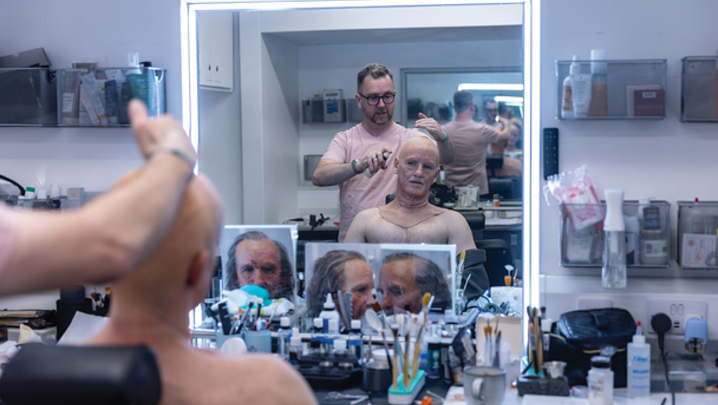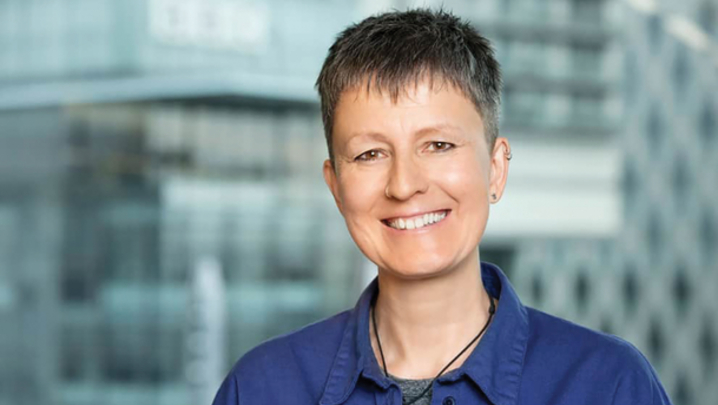Graeme Thompson shows how studying media in North East England trumps North East China
Here in the North East, it doesn't take long to detect a growing appetite for culture and the creativeindustries. After years of eye-watering investment in regeneration, manufacturing and infrastructure, civic leaders are prioritising design, content production and interactive digital media.
And young people are queuing up in their thousands to gain the skills and qualifications to pursue creative careers.
This is the North East of China and I'm in the city of Shenyang – a sprawling metropolis of 8 million people. I'm meeting university leaders keen to adopt UK-style industry-focused design and media degrees.
At the Shenyang Aerospace University, there's been extraordinary spend over the past five years in arts, design and media. Here among the fine-art studios and design labs, they already produce animation for broadcasters, including Disney.
Next door, fellow students are hard at work in a vast hanger testing and developing solar-powered drones and light aircraft.
This reminder of the Chinese preoccupation with science, engineering and business continues alongside their new enthusiasm for creativity.
The university's Vice-President outlines his strategy: he wants his staff and students to learn from the best in the world. And, in his book, when it comes to the creative industries, there's nowhere better than the UK.
It's no secret here that the UK's creative industries are growing three times faster than any other sector of the economy and account for many of the globe's biggest brands.
But, while China is enthusiastically promoting careers in art, design and production, it feels like a different story back home. Jonathan Miller compares media degrees to having a qualification in stationery. Politicians openly question the value of young people opting to study arts and creative degrees at our universities.
In North East England, we're attempting to change those perceptions. The five universities in the region are making the case that economic regeneration needs its artists, designers and producers just as much as its planners, accountants and scientists.
Games and software activity in North East England is booming. Television, less so. According to the latest research from Broadcast magazine, independent production across the North of England has been decimated since 2011 by a lack of commissions and increased industry consolidation around London.
"Economic regeneration needs its artists, designers and producers just as much as its planners, accountants and scientists"
Thankfully, ITV and the BBC continue to do their bit for the North East creative economy. Production of BBC children's drama continues to employ large numbers of local performers and crew, with shows that include Wolfblood and The Dumping Ground.
Filming starts soon in Northumberland on the next instalment of the Brenda Blethyn ITV hit Vera.
Shooting is under way at a quarry in Weardale for ITV's 13-part retelling of the Beowulf legend. Starring Hollywood actor William Hurt, the series mixes action, adventure and fantasy. It is already being compared to Game of Thrones.
More importantly – at least in my book – the efforts by drama producer Will Nicholson to get the show made in the North East, ahead of other rugged landscapes, has resulted in jobs for at least two of Sunderland University's media production graduates.
Which brings me nicely back to the students and academics I've met in China. I show them my film of life on the Sunderland coastal campus with its lingering shots of post-production suites, design labs and expensively equipped radio and television studios.
A young man is quick to assure me that no one in China under the age of 30 watches television: "We get everything here"; he holds up a large-screen smartphone of indeterminate make.
"TV is for grandparents," concurs his friend.
I'm beginning to wonder if I've blown it by mentioning television.
I should have stuck with music, apps and game design. But, then, another student looks up at the dust cloud and fumes filtering the light and makes my day: "I come to Sunderland to study animation and production and to breathe the clean sea air and see the sun."
I haven't made the case for television, but I might have found a new recruitment slogan.
Graeme Thompson is Chair of the RTS Education Committee and Dean of Arts, Design and Media at the University of Sunderland.







